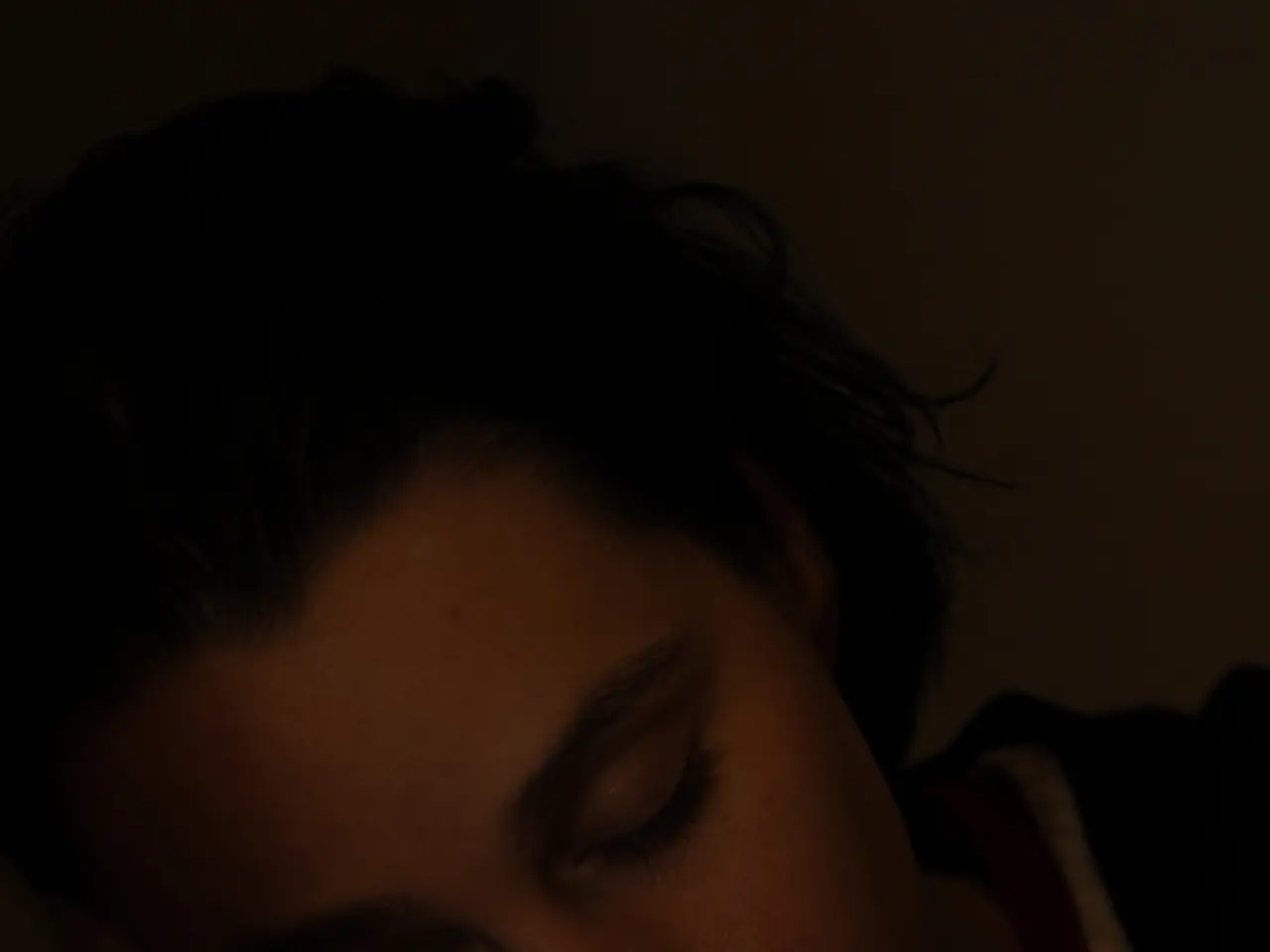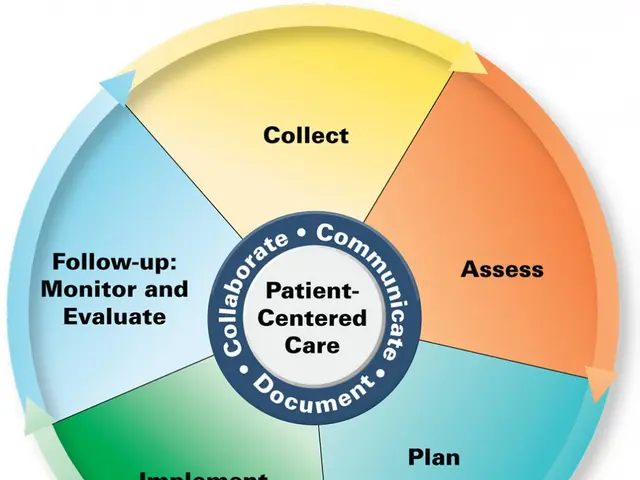Sudden bouts of tiredness: Exploring four possible causes
Article: Understanding Random Daytime Sleepiness
Many people experience random daytime sleepiness, a symptom characterized by difficulty staying awake during the day. This issue is often caused by a combination of lifestyle habits, environmental influences, medical conditions, and medications.
Lifestyle factors play a significant role in random daytime sleepiness. Sleep deprivation, irregular sleep habits, poor diet, lack of exercise, stress, caffeine, alcohol, smoking, shift work, and napping during the day can all contribute to this issue. Sleep deprivation is the most common cause, with an irregular or insufficient sleep schedule leading to accumulating "sleep debt," causing drowsiness. Poor nutrition, dehydration, and lack of exercise also worsen sleep quality and energy levels. Stress and mental health issues influence sleep patterns, further exacerbating the problem. Caffeine late in the day or excessive alcohol disrupt sleep cycles, resulting in daytime sleepiness.
Environmental factors such as noisy or bright sleeping environments can also contribute to random daytime sleepiness. External disturbances can fragment sleep, leading to non-restorative sleep and daytime drowsiness.
Medical conditions like sleep apnea, narcolepsy, idiopathic hypersomnia, depression, anxiety, neurodegenerative diseases, ADHD, autism, and pain-related conditions can cause excessive daytime sleepiness. Sleep apnea causes breathing interruptions and poor-quality sleep, leading to daytime sleepiness. Narcolepsy causes sudden sleep attacks. Mental health disorders like depression and anxiety can also cause excessive sleepiness. Neurodevelopmental and neurodegenerative diseases affect brain regulation of sleep-wake cycles.
Medications can also be a cause of excessive daytime sleepiness. Sedatives, sleep aids, some antidepressants and antipsychotics, and other CNS depressants can have sedating side effects that cause excessive sleepiness during the day.
Excessive Daytime Sleepiness (EDS) is not the same as fatigue, though the two often coexist. EDS is characterized by difficulty staying awake during the day.
The natural 24-hour body clock and progression through sleep stages affect how easily one wakes or falls asleep. Disruptions to these rhythms (due to shift work, irregular bedtimes, etc.) can induce daytime sleepiness. People who accumulate sleep debt from poor sleep habits or conditions may experience random daytime sleepiness as their body attempts to recover by forcing naps or sleep episodes.
Mental health and stress also influence sleep quality and can increase sleepiness during the day. Lifestyle improvements such as balanced diet, hydration, and moderate exercise help improve sleep and reduce daytime drowsiness.
In summary, random daytime sleep episodes result from a complex interaction of insufficient or poor-quality sleep, lifestyle habits, medical issues, and medication effects. Identifying the underlying cause through medical evaluation and improving sleep hygiene are critical steps to reducing excessive daytime sleepiness.
References: 1. Sleep Foundation 2. Mayo Clinic 3. National Sleep Foundation 4. American Academy of Sleep Medicine
- People who suffer from depression may also experience random daytime sleepiness, as depression is a mental health disease that can affect sleep patterns.
- Obesity, a condition that affects many people, can also lead to sleeping difficulties and increase the risk of random daytime sleepiness.
- Colitis, an inflammatory bowel disease, can cause chronic sleep disruptions, contributing to random daytime sleepiness.
- Cancer patients often experience difficulty sleeping, which can exacerbate random daytime sleepiness due to weakened health and the side effects of treatment.
- Some people with kidney disease (CKD) have sleep-related problems, including random daytime sleepiness, as a result of increased urination during the night.
- Atopic diseases, such as asthma and eczema, can cause discomfort and interrupt sleep, resulting in random daytime sleepiness in some individuals.
- Those seeking solutions for sleep-related issues may find relief in sleeping supplements (sleepsupplements), which can help manage random daytime sleepiness.
- Migraine sufferers may experience difficulty sleeping, and the pain can cause daytime sleepiness in some cases.
- Personas with multiple ailments, such as psoriasis, ulcerative colitis, multiple sclerosis, or diabetes, may struggle with random daytime sleepiness due to the cumulative effects of their health conditions.
- Sleeping difficulties, such as insomnia, can lead to bipolar disorder as a result of the disruption in the body's sleep cycle and physiological rhythm.
- The predictive science of sleep health focuses on understanding the various factors contributing to random daytime sleepiness, including mental health and lifestyle choices.
- Sleeping disorders like obstructive sleep apnea, narcolepsy, and idiopathic hypersomnia can cause chronic sleepiness and disrupt the normal sleep-wake cycle, leading to random daytime sleepiness.
- Chronic conditions like diabetes, psoriasis, and multiple sclerosis can lead to complications such as atopic dermatitis or breast pain and affect sleep patterns, contributing to random daytime sleepiness.
- Scientific research on sleep aims to develop effective strategies to manage random daytime sleepiness and improve overall health-and-wellness.
- Identifying and addressing the underlying cause of random daytime sleepiness is crucial for improving sleep quality and reducing daytime drowsiness, whether it's due to lifestyle factors, medical conditions, or medication side effects.





